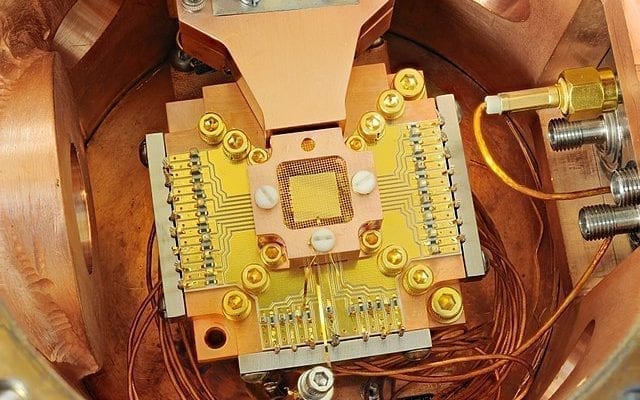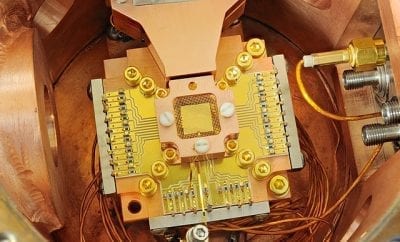
Lifestyle
What Exactly is a Quantum Computer?
The mere definition of a computer has changed dramatically in the past 50 years alone. What used to take up an entire room filled with a mess of wires, tubes, massive towers, now fits in your pocket. With the amazing stories, we have made in computer technology, we are just now beginning to scratch the surface of the next big breakthrough in computing – quantum computers.
The name alone brings forth images bordering on the realm of sci-fi, but what exactly is a quantum computer, and what makes it so different from a computer? No need to be a computer expert to understand just how these incredible machines work, we’re gonna break it down for you.
A classical computer, just the like the laptop I’m typing this on, can essentially be broken down to a simplified definition of being a really fancy calculator. Under the hood of it, it pretty much breaks down to a bunch of sequences of values, representing 0 and 1. These numbers, or bits, represent a state, similar to an “on” and “off” switch. When we input data in our computers, for example, in the form of opening up a web browser, it follows a prearranged set of instructions that will execute the action. However, say you want to run a program to analyze one million different chemical compounds to see which can be a potentially viable new cancer-fighting drug. This would require considerable processing power, something classical computers will require a long time to complete.
When it comes to quantum computers, it becomes a bit more complex when it comes to executing actions when compared to classical computers. As we enter a time where big data is changing the way we interact with the digital world, there will be a need for computers to be able to process much more in order to solve complex problems like the one stated above. Quantum computers will be used to accomplish massive feats of calculations called intractable problems, as quick as possible.
The world of subatomic particles is one where particles behave in very peculiar ways. At this level, a pretty spooky thing happens – particles are able to exist in more than one state of time. To put this into perspective, think of those 0’s and 1’s in a classical computer. Whenever a calculation is made, these bits must choose to be a 0 or a 1. But in a quantum computer, these bits, called qubits, are able to store a 0, a 1, both, or an infinite number of values in between. This boils down to quantum computers having the capability to store and process a ton of information while using considerably less energy than a classical computer. Just how fast? How about a million times faster, and that’s just the beginning.
While it’s difficult to predict how quantum computing will impact the world, but we do know there will numerous application in a number of different industries. From changing the way we do business, to allowing us to achieve incredible advances in medicine, physics, space exploration, weather prediction and more. While we shouldn’t expect the next iPhone to be powered by a quantum computer, this incredible new way on computing will certainly change the trajectory of the modern world, with companies like Google, IBM, and Microsoft pursuing heavy investment in developing such the next quantum computer.




0 comments